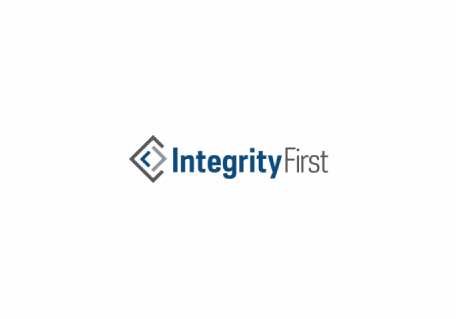Imagine hiring someone who looks perfect on paper—until expense reports start “mysteriously” ballooning and confidential data walks out the door. Sound dramatic? Maybe. But every year, organizations lose billions to insider fraud, data breaches, and toxic behavior that better screening could have caught. That’s exactly why an integrity test is crucial in today’s hiring process.
Below, you’ll see how integrity testing works, what the research says, and how to weave it seamlessly into interviews, reference checks, and onboarding—so you never have to gamble on character again.
The Business Case for Integrity Testing

| Business Risk | Average Cost When Integrity Fails | How an Integrity Test Helps |
| Payroll fraud | $150,000 per incident | Screens for honesty & rule-following behavior |
| Customer data breaches | $4.45 M (2023 global average) | Flags low conscientiousness & high risk-taking |
| Toxic turnover | 34 % higher quit rate on affected teams | Identifies counterproductive work behaviors |
Bottom line: An integrity test is crucial because it turns character into a measurable data point—before damage is done.
How Integrity Tests Work
Integrity assessments present applicants with statements or scenarios to gauge:
- Honesty (e.g., attitudes toward theft or lying)
- Dependability (timeliness, follow-through)
- Rule adherence (respect for policies and laws)
- Risk tolerance (likelihood of impulsive or unethical decisions)
Responses are scored against validated benchmarks that predict on-the-job behavior. High-risk applicants emerge early, saving you hours of interviewing people who don’t share your values.
In fact, multiple research reviews support the predictive validity of these tools, especially when measuring counterproductive work behaviors and ethical risk profiles. This comprehensive review of integrity tests offers a deeper dive into their effectiveness, limitations, and how they’ve evolved over time.
Overt vs. Personality-Based Tests

| Feature | Overt Integrity Test | Personality-Based Integrity Test |
| Question Style | Direct: “Is stealing wrong?” | Indirect: “Rules slow progress.” |
| Faking Risk | Higher | Lower (harder to guess “right” answer) |
| Insight Depth | Surface honesty | Broader character traits |
| Best Use | High-volume, low-complexity roles | Professional or leadership roles |
Want to explore the indirect approach in depth? Dive into our guide on the personality-based integrity test to see why many companies favor it for senior positions.
Incorporating Tests into Your Hiring Funnel
- Application Stage – 10-minute online assessment filters obvious red flags.
- First-Round Interview – Discuss results and probe deeper. (Need tactics? See how to test integrity in an interview.)
- Reference Checks – Verify integrity-related stories.
- Conditional Offer – Background check confirms there’s no hidden history.
Tip: Automate scoring inside your ATS to keep the candidate experience swift and transparent.
Sample Questions & Scoring

| Question (Likert 1–5) | What a High Score Signals | Red-Flag Interpretation |
| “Taking small items home isn’t real theft.” | Justifies dishonesty | Low integrity |
| “I feel bad if I’m five minutes late to work.” | Strong dependability | N/A |
| “Big risks are exciting—even if rules get bent.” | Potential policy breaches | High risk tolerance |
| Scenario: “A peer falsifies a report. You?” | Will report promptly | May ignore wrongdoing |
Scores combine into an overall Integrity Index. Applicants below your threshold can be declined or progressed with caution.
Common Myths Busted
| Myth | Reality |
| “Integrity tests are easy to fake.” | Personality-based formats include consistency traps that catch most fakers. |
| “Tests slow hiring.” | With auto-scoring, you’ll spend less time on low-fit candidates. |
| “We’ll lose too many applicants.” | You’ll lose risky applicants—saving on future turnover and compliance headaches. |
FAQ
Q1. Why exactly is an integrity test crucial today?
Remote work, data everywhere, and high regulatory scrutiny mean a single bad hire has wider reach and impact than ever before. Testing integrity lowers that risk dramatically.
Q2. Are integrity tests legal?
Yes—when they’re job-related, validated, and applied equally. Always use vendors that provide EEOC-compliant data.
Q3. How long does an assessment take?
Most reputable tests run 10–15 minutes—short enough to retain candidates but long enough to gather reliable data.
Q4. Can tests replace interviews?
No. Think of them as the first filter. Interviews (especially structured, behavioral ones) verify and expand on test insights.
Q5. Do high scores guarantee perfect behavior?
No assessment is foolproof, but integrity testing statistically reduces incidents of theft, fraud, and policy violations.
Final Thoughts
In a world where one click can leak customer data and one unethical sale can invite a lawsuit, an integrity test is crucial—not optional. By adding a validated assessment early in your funnel and following up with probing interviews, you’ll hire people who protect your culture, not threaten it.
Ready to embed integrity into every hire? Start with a small pilot, measure the drop in red flags and turnover, and watch trust—and performance—rise across your organization.
Ready to talk it through? Schedule a call with our integrity-screening experts.






